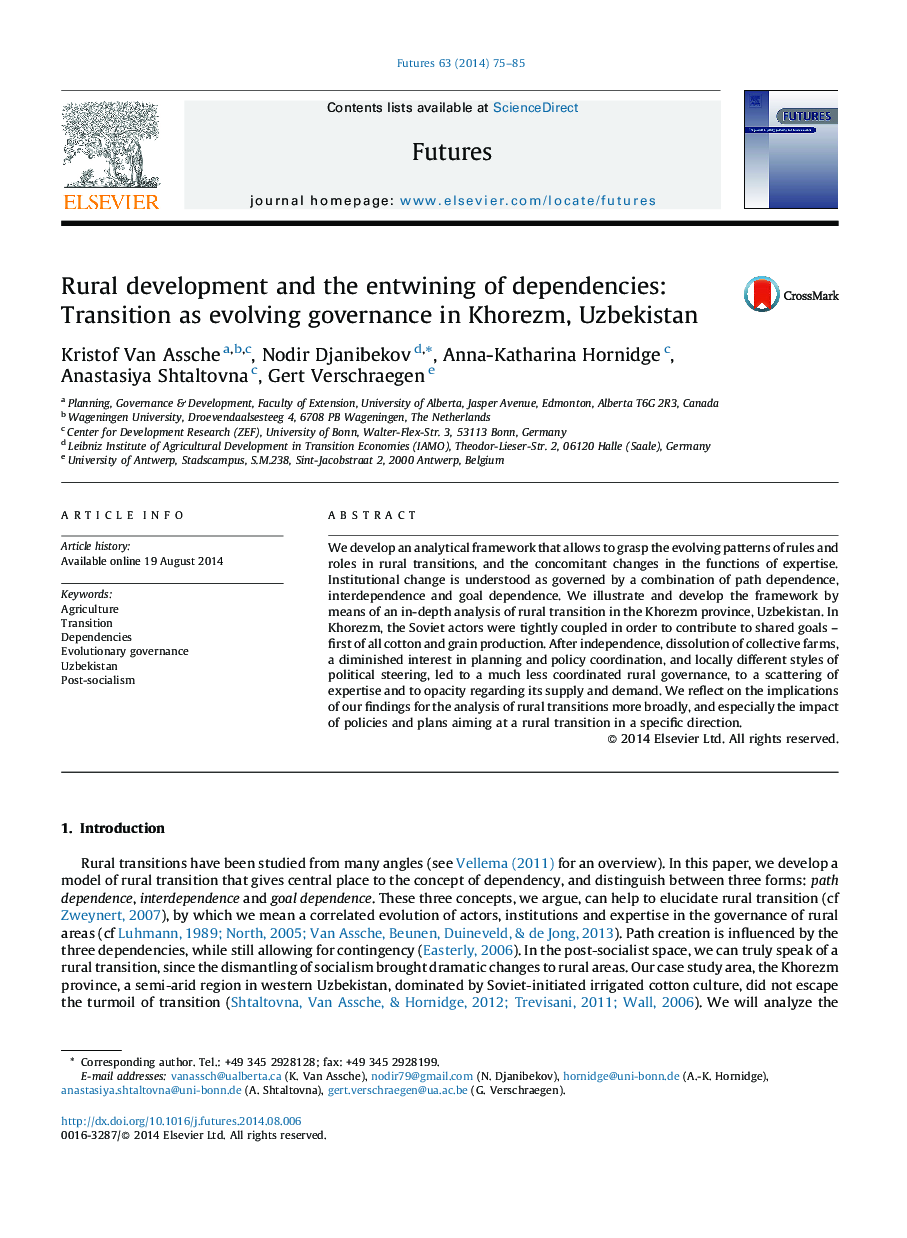| Article ID | Journal | Published Year | Pages | File Type |
|---|---|---|---|---|
| 7424469 | Futures | 2014 | 11 Pages |
Abstract
We develop an analytical framework that allows to grasp the evolving patterns of rules and roles in rural transitions, and the concomitant changes in the functions of expertise. Institutional change is understood as governed by a combination of path dependence, interdependence and goal dependence. We illustrate and develop the framework by means of an in-depth analysis of rural transition in the Khorezm province, Uzbekistan. In Khorezm, the Soviet actors were tightly coupled in order to contribute to shared goals - first of all cotton and grain production. After independence, dissolution of collective farms, a diminished interest in planning and policy coordination, and locally different styles of political steering, led to a much less coordinated rural governance, to a scattering of expertise and to opacity regarding its supply and demand. We reflect on the implications of our findings for the analysis of rural transitions more broadly, and especially the impact of policies and plans aiming at a rural transition in a specific direction.
Related Topics
Social Sciences and Humanities
Business, Management and Accounting
Business and International Management
Authors
Kristof Van Assche, Nodir Djanibekov, Anna-Katharina Hornidge, Anastasiya Shtaltovna, Gert Verschraegen,
